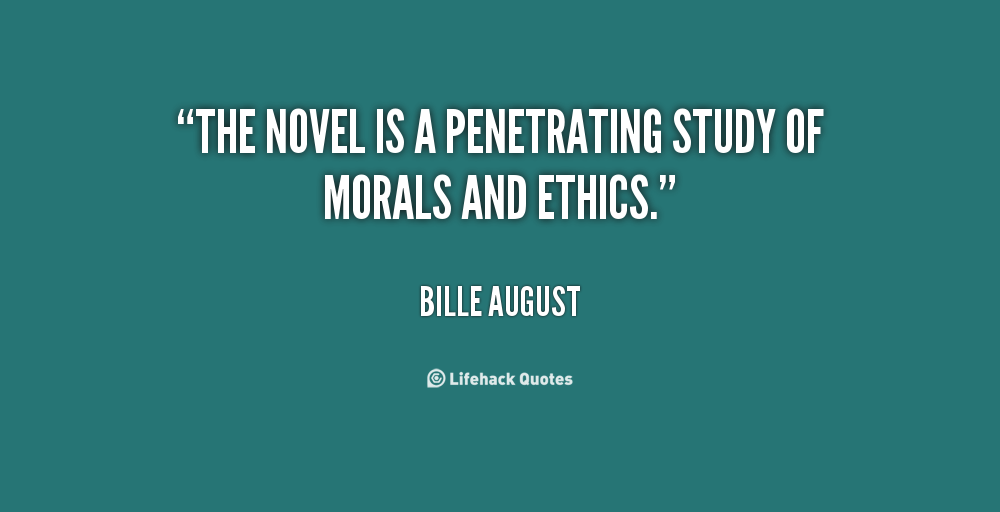-
Posts
159 -
Joined
-
Days Won
9
Everything posted by Eudaimonic
-
This is not an argument.
-
This doesn't address that it doesn't make sense to try to change someone's mind in a deterministic universe.
-
I'm disengaging further debate/conversation with you until I receive an apology for that insulting assumption. I will point to my previous posts if the community is curious as to the validity of his allegation.
-
If you believe I'm being dishonest, then it doesn't make much sense to debate me. I don't think I'm being dishonest and I'll let my credibility rest on my previous posts here and in other threads. I think it's insulting to so quickly label me dishonest and I don't assume anything like that about you. I think it would be appropriate to apologise for that allegation.
-
Read Introduction to Objectivist Epistemology to learn how knowledge is obtained, justified and how the emperical/rationalist dichotomy is false. You can't even due a slim over of the concept in one post alone. This doesn't change that knowledge is justified true belief.
-
I wasn't attempting to invalidate determinism either. All I said was that if determinism was true it wouldn't make sense to try to change a mind who was determined to believe what it believes. I've already explained why I'm not going further with you on the free will debate. By your tone, this doesn't seem to me to be about free will vs determinism anymore.
-
Not an argument.
-
I wasn't attempting to prove free will, I said it doesn't make much sense to try to change another's mind when you have no control over that person's beliefs according to determinism.
-
Knowledge is justified true belief. Animals have valid intuition, not knowledge. You're conflating two different definitions and calling both knowledge.
-
Because determinist have the choice as to what position they take. The concept of determinism is invalid and contradictory, but a determinist is not determined to hold that belief, where as that is the opposite in a deterministic universe.
-
That is not what I said.
-
I don't think I'm interested in parsing this out with you. If you think knowledge is arbitrary, you've invalidated your own position. If you think free will is an illusion, you should stop debating me because you have no control over what I believe anyway. Furthermore, I'd say you should see how determinism and an arbitrary view of knowledge is affecting your life. This may have something to do with it. This isn't an argument from me however.
-
This is not an argument. It also doesn't address the epistemological problem of knowledge, all it says is that you can observe the same behavior in a deterministic universe as well as a libertarian one. The problem is epistemological, not emperical. I'm not attempting to disprove that the behavior we observe can't possibly be deterministic, my argument is that you can't have knowledge in a deterministic universe. I could simply reverse this and say determinism doesn't preclude free will and call myself a philosopher. You haven't addressed my main argument and this is getting tiring especially considering you're acting on the premise of free will. I'm curious to know you're relationship to it. I've already shown that choice can exist within universal laws. Potentialities can exist within universals (i.e. more than one thing can happen in any given situation depending on which causes are acted on.) Humans have the capacity to enact multiple causes. I don't see how this contradicts materialism. There are a set if universal laws, a limited number of causes which can be acted on, but this doesn't mean that there is no choice, only that one's choice is limited to ones nature and what is possible. In fact, we see that when one learns more about causes, one acquires a larger ranger of action, which is why we hold adults morally responsible and don't babies. I don't even have to argue why or how it works, you have the burden of proof.
-
I would say that's a possible quality of an entity, but that an entity can not be an actor just as well. An entity as I define it is simple an independent existent with identity. That includes inanimate, animate, live or dead, acting or not. Rocks, trees and humans are all entities.
-
Depends on how you define agency.
-
Logic is something objective, not arbitrary. Logic, to be valid, is dependent on free will because otherwise your conclusions are nothing but post-hoc assumption, not justified true belief. Knowledge and validation is meaningless without free will, it's a post-hoc show. These terms only mean something if you can voluntarily run a hypothesis through a methodology and come to a conclusion based on that. In a deterministic universe, you have a belief because you have to, not because you've justified it. Truth is not faith based, it is objective via objective metaphysical axioms which are true because they could not be otherwise, that is not faith, that's certainty. Read Introduction to Objectivist Epistemology. Faith is not required for truth and is arbitrary, which truth by definition cannot be. You do not have to reject materialism because there is no reason to assume that free will can't exist with universals. As well, it's on the determinist to show that free will is an illusion and not the libertarian to prove free will, which science is overwhelmingly agnostic in the issue and hasn't been able to disprove it, neither have philosophers given the epistemological problem.
-
Only individuals exist, you can't apply a moral concept to a non-entity. This is like asking: NAP for Smurfs?
-
I'm confused, is it determined beforehand or not? If the universe is determined then everything that is happening was going to happen since the beginning of existence. The brain can be as logical as it wants, but it will never be justified in believing in that logic or that logic is even valid, because it was determined to accept that logic is valid (how do you know, what can you compare it to?) All beliefs in a deterministic universe are fundamentally faith based. It doesn't matter whether a body or mind are deterministically going through the motions, there's nothing to place one's justification on. If everything is post-hoc fabrication, how can one know that everything is post-hoc fabrication?
-
If we have knowledge we must be justified in believing what is true. In a deterministic universe, what you believe and what convinces you is determined beforehand, you automatically assume what you are determined to believe. You may, by chance, be correct in your position, but you can never be justified in it because you could never run your position through a methodology that meant anything. You would accept what you accept because you are determined to accept it, all explaination would be post-hoc fabrication (which embarrassingly is exactly what Gazzaniga argues...) To justify a position you need to be able to choose to run it (or not) through a methodology.
-
If free will isn't true there's no such thing as knowledge. There must be knowledge, therefore free will is true. If you posit that free will isn't true you're saying that you don't know if the argument "free will isn't true" is true or not, which means you can't posit that free will isn't true. Free Will is required for knowledge. For you to know that free will is not true, free will must be true.
-
The machine doesn't choose, there's no potential for it to choose anything else but what it's algorithm determines from your data. Humans have the capacity to choose from potentials. How that process works and why we have that capacity is not known, but free will is true because knowledge is dependent on it. Any theory that attempts to disprove free will nesseccarily invalidates itself.
-
Not exactly, but I see what you mean. Potentialities, in this definition, implies that if you wound back the clock you would be able to choose to manifest a different potential within the set of universals just as equally as the first. Determinism, as I understand it, implies no potentialities, there is and only can be one outcome in any given moment. To use my example: if you could go back in time you would be equally able to choose cod instead of haddock, but in both situations you have to eat seafood. I've actually wondered if this is a more compatiblist position, but I don't understand that term clearly and have gotten different definitions for it, so I just call my position free will. I give the burden of proof to determinism or free will agnosticism because most people naturally (free from indoctrination or violence) assume free will to be true. Sort of how the earth being round had the burden of proof against it being flat and now visa versa. I don't know if that matters to you.
-
The ability to, at any given moment, manifest several potentialities within the context of what is possible (universals) through one's actions. A crude example: You're going to eat dinner at a Seafood restaurant (universal) but you can tell the waiter (manifestation) that you want cod or haddock or scallops or some combination (potentialities.) In this context, Free Will is the ability to choose between what seafood you'll have even though it is determined that you will eat seafood.
-
Have you tried any type of cognitive therapy or Internal Family Systems work? Often times those moments when we feel unmotivated or unfocused (even if the feeling is persistent) may be due, for particular reasons, to parts of us who don't want to focus (for example: to keep you distracted from childhood pain) or be unmotivated to achieve (for example: to prevent you from potentially losing what you've achieve and that causing pain.) Even if one's ADD/ADHD is an inborn aspect rather than something coming from childhood, working through childhood issues or in IFS terms, integrating your parts, can give you additional mental resources (that were originally dealing with your childhood) to approach the more inborn problems. And it doesn't require medication! In fact Jay Earley's Self-Therapy will teach you the basics of the IFS approach, so you don't even have to pay for a therapist!
-
Science is almost entirely deterministic or agnostic and some good reads for the science of determinism is Sam Harris's Free Will or Michael S. Gazzaniga's Who's In Charge? For a short book on why exactly the science of determinism doesn't nesseccarily disprove free will Alfred R. Mele's Free: Why Science Hasn't Disproven Free Will is also a great book. There is little to no scientific evidence for free will, though there is introspection. However, you can assume free will since Determinism and agnosticism therein has the burden of proof. As well, I can assure you that science will never disprove free will given the fact that science assumes free will in order to validate it's theories.



